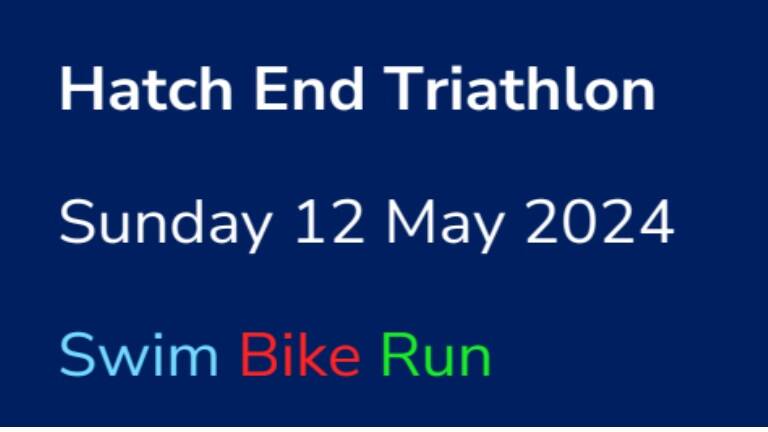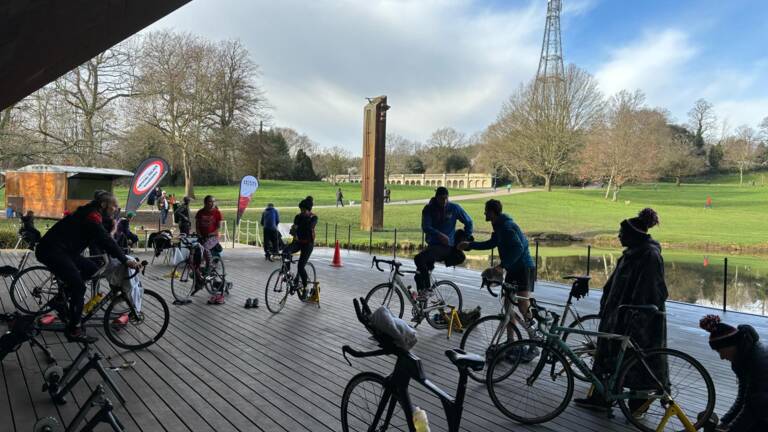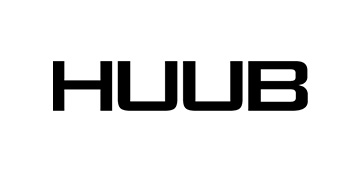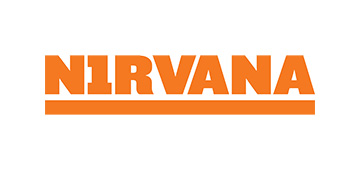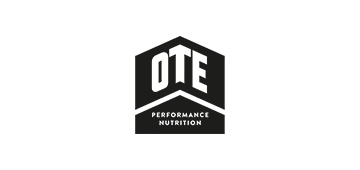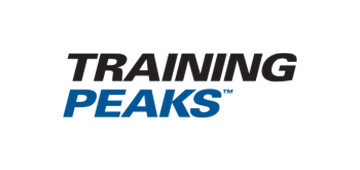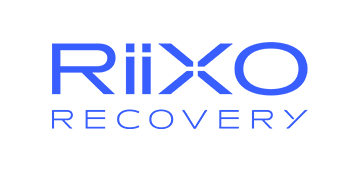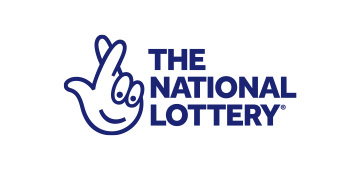New year, new training regime? Sports science tests are becoming increasingly popular and you no longer have to be an elite athlete to access them. We’ve been taking a look at some of the sophisticated tests on the market to help you get the edge on your training.
800M runner Jenny Meadows used data from her DNA-fit tests and altered her training plan to account for her 51% leaning to endurance training
Certain genes dictate how the body responds to diet and exercise. Knowing which gene types you have can help you tailor your fitness plan for maximum gains and identify if you need to avoid or increase particular food types.
DNA-Fit screens 45 different gene variants with a proven link to diet and exercise. You send in a saliva sample and a couple of weeks later you get a 20-page report – one for fitness and one for diet. The former will rate your suitability for endurance vs. speed. This comes as a percentage split. For example, I came out as 65:35 bias towards endurance. You'll also get a rating for VO2 Max potential, recovery speed, potential for soft tissue injury and more. On the dietary side, you will learn your sensitivity to saturated fats, sensitivity to carbohydrates, detoxification ability, sensitivity to caffeine and alcohol and any raised needs for certain vitamins.
Beware though, the human genome consists of millions of genes. This kit can only test those with a proven link to diet and fitness factors. There are likely to be thousands, even millions of other genes also playing a role, which we don’t know enough about yet.
Test kit from £149 from DNAFit.com, Holland and Barrett or GNC.
Blood testing for athletes. No not that sort of blood testing. CuroSeven offers a four-tier package designed to identify hormonal and nutrient deficiencies or imbalances. The most basic will give your red blood count, iron levels, electrolytes, kidney function, liver function, thyroid function and more. The more expensive packages will give more advanced thyroid readings, adrenal functions, growth hormone status, menstrual hormonal balances for women and lots more.
The long list of results may look like a foreign language, but you’ll also get a personalized and detailed email from Dr Tamsin Lewis highlighting any issues and suggestions for supplements and diet changes. Dr Lewis is not only a medical doctor with a specialism in preventative health and psychiatry, but a former pro triathlete and winner of Ironman UK. Optimal blood test ranges for athletes are different from the range your GP will tell you is normal so think of this as training-specific medical advice.
Based on my results, Dr Lewis told me to ditch existing supplements since levels of certain vitamins were too high. She advised I take selenium and to make sure I consume enough carbohydrates because my thyroid was under pressure – something frequently seen in athletes when their bodies try to conserve energy. She also suggested a progesterone cream, B6 and zinc to help with hormonal imbalances.
Test packages from £299 plus £20 ‘blood draw’ fee from several private clinics around the country.
Get your power, heart rate zones, endurance capacity and VO2 max scientifically established. Many of us use formulas to get estimates for our training zones, but unless you know what your threshold heart rate (the point at which your body switches to an anaerobic energy system and lactic acid can not be cleared quickly enough from the body), you can’t really put these zones to any use.
The tests are carried out by Dr Garry Palmer, a coach and a GB age-group triathlete so he’ll put together a training plan at the end of your session based on the results of the tests.
Helen, from the Triathlon England media team, gets wired up to gas analysers for threshold and VO2 max testing
You’ll perform the test twice – once on a stationary bike and once on a treadmill because your training zones are likely to be different for the two sports. It is not a glamorous procedure. You’ll be muzzled into a huge oxygen mask and strapped with a heart rate monitor.
A very clever machine, using gas analysers, wil determine your training zones based on your metabolic threshold heart rate because this will be the point when the level of CO2 expelled exceeds the level of oxygen breathed in. The amount of oxygen being processed at the end of the test is your VO2 max. Before I had this done, my Garmin watch estimated my VO2 max to be 50, but this test gave me a reading of 60. Definitely makes the test worthwhile.
Tests cost from £175 in London, Milton Keynes or West Midlands
Willer Performance Progress
A science-savvy company offering various levels of fitness testing tailored to triathlon, cycling or running. The ‘base-line’ package will look at your body composition and hydration status. The next level up and you get a musco-skeletal analysis which tests flexibility, posture and weakness and any injury adaptions you may have accumulated.
If you opt for a performance-based test, the procedure will cover blood pressure, recovery heart rate, lung function, VO2 max and lactate threshold. Bring tissues because the test involves cycling on a static Watt bike, with a small finger prick sample of blood taken every couple of minutes. The point when lactic acid begins to accumulate is your lactic threshold. Knowing your heart rate at this point is useful in setting the intensity for 'threshold' sessions.
Or, go for a cycling special. A couple of hours being analyzed on a stationary bike, and some complicated calculations later, you’ll have a breakdown of your force peak, force average, force per revolution (pedal strike), torque average (the level of force in relation to the angle of the pedals) and your power to bodyweight ratio. Keeping a record of these figures will help you track progress in strength and power.
Various tests available at wilierppl.com. The simplest test - a basic pedal analysis costs £25
BodyScan
There are many DIY approaches to measuring body fat and lean mass – calipers and bio-impedance monitors in gyms (which use light to detect the contours in the body) but if you want an accurate reading of body composition, BodyScan uses the very latest, medically developed DEXA (dual energy X-ray absorptiometry) technology.
This is the easiest test of all of them. All you have to do is lie back on a padded bed while a moving arm passes over your body. Seven minutes and you’re done.
Then you get an instant reading of the amount of body fat, lean tissue and bone mass in each major part of your body – arms, legs and trunk.
A customer gets a DEXA scan. The radiation in each scan is less than eating a small bag of brazil nuts
The machine also gives an estimate of your visceral fat - the unseen toxic fat that surrounds the internal organs and is linked with diabetes, heart disease, colon cancer and stroke. A visceral fat estimate above 100 indicates an increased heath risk, while above 160 is classified as high risk.
Did you know that a number of studies have identified optimum ranges of body fat for individual sports? For example, at competition time, male bodybuilders will aim for below 5% body fat. Male runners typically have around 6% body fat, cyclists around 8-10% and swimmers 10-12%. But even if you aren’t aiming for a pro’s body, an accurate reading of your body fat and muscle mass gives a far clearer picture of your shape than the scales.
Scans from BodyScanUK.com start from £129, prices vary according to location.
Sweat Testing
Managing electrolyte balance is critical for optimum performance but if you don’t know how much sodium you lose when you sweat, how can you calculate it accurately? Sweat volume losses can vary widely between individuals under the same conditions.
Some athletes can lose as little as 2.3 g of sodium in one hour and others as much as 30 g of sodium in exactly the same training session.
The concentration of electrolytes contained in human sweat can also vary so for two different people under the same conditions it is possible to see as much as a 13-fold difference in net electrolyte losses.
A sweat test takes around 45 minutes
Don’t worry, you don’t have to complete a full-on spin class to take a sweat test. A sample is taken from a band on your arm while you sit down. From the results you get a personalized hydration strategy, a recommendation on the type of electrolyte drink and concentration best for you and the company offering it can even provide you with a specific electrolyte tablet made just for you.
Tests cost from £95 at precisionhydration.com. Multiple lLocations around the country.
Triathlon England members get a generous discount on several of the above tests. Visit our member’s benefit page HERE for details.



